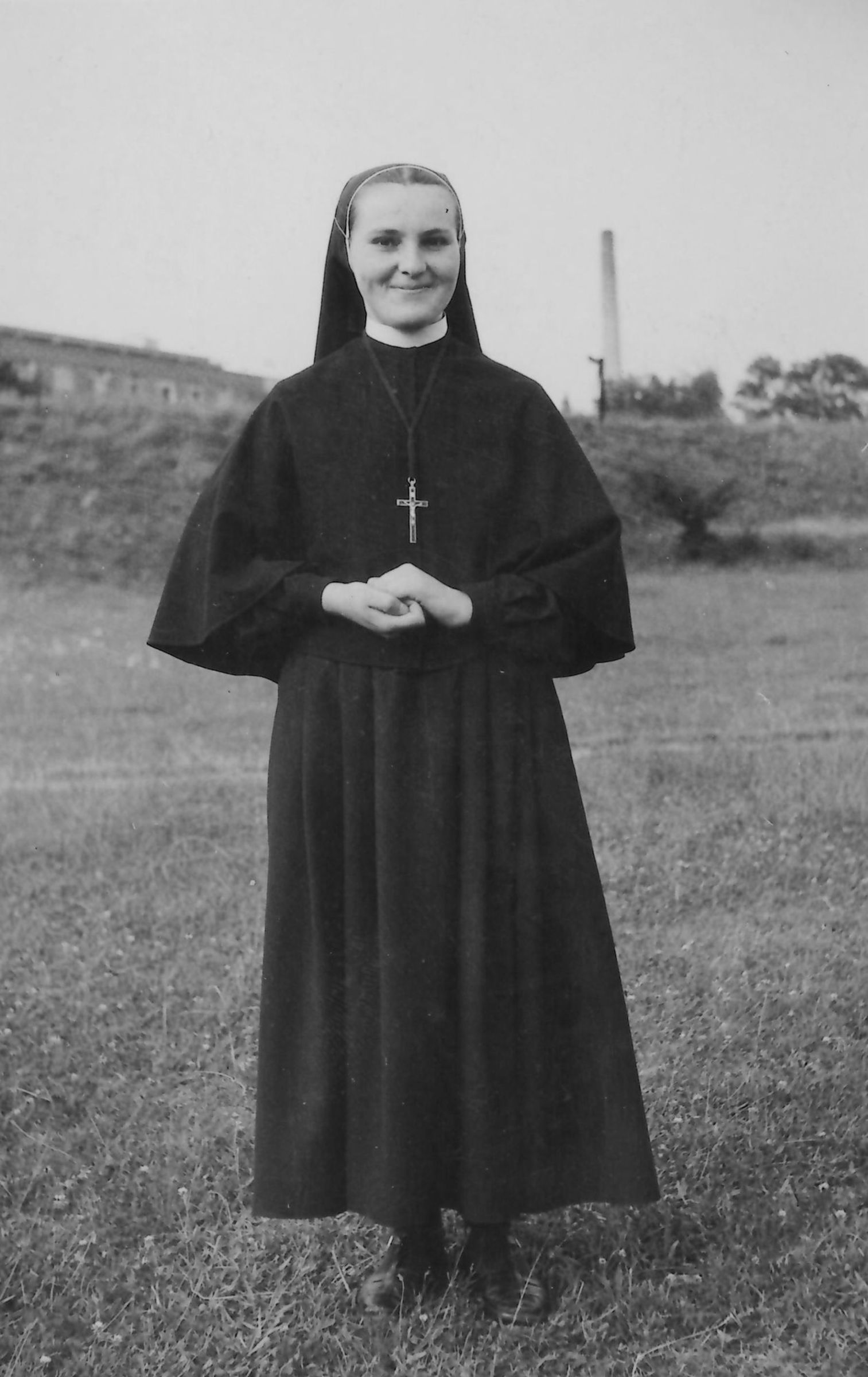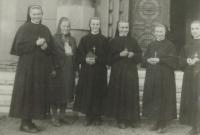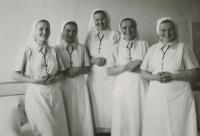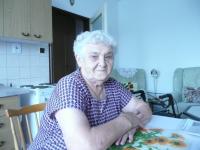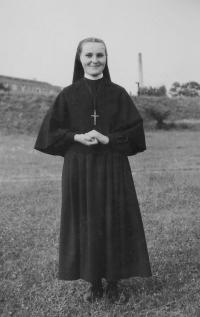It was nice in the convent, different than in the world. Then came the normal life
Lucie Kohoutková was born January 8, 1929 in Hora Sv. Kateřiny in the Ore Mountains. Her father was a Czech and her mother was a German. When she was fifteen, Lucie began working in the Children’s Home in Radošov near Karlovy Vary which was run by the congregation of the Sisters of Mercy of the Holy Cross. It was here that she experienced the postwar deportations of exhausted German people who were leaving their malnourished and hungry infants in the children’s home. Lucie liked her life among the nuns. She became a candidate and she wished to study a nursing school in Cheb. However, everything changed on September 14, 1950 when the StB closed down the convent. Lucie and the nuns were taken for internment to the convent in Bohosudov. Their fellow German sisters meanwhile awaited their deportation in Cheb. Lucie became a novice in Bohosudov and she took her first profession of vows here. The nuns were subsequently dispersed into various hospitals and Lucie Kohoutková was assigned to a hospital in Kladno. They were allowed to wear their nuns’ habits only for going to church, otherwise they had to wear civilian clothing. While working in the hospital, Lucie met her future husband and she was the first one to leave the congregation. She married and she had one daughter. Her husband was a farmer whose farm had been confiscated. Lucie’s sister married in West Berlin where she was doing forced labour. The sisters could meet again only after sixteen years of separation.
